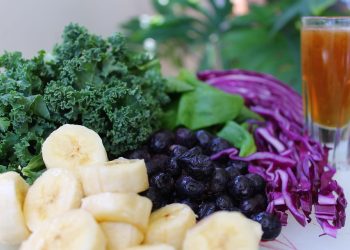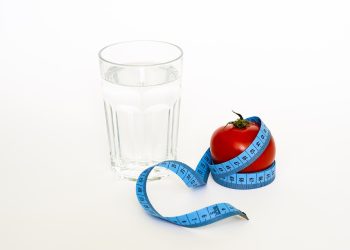Belly fat, also known as visceral fat, isn’t just an aesthetic concern. It’s a serious health risk, linked to heart disease, type 2 diabetes, and other chronic conditions. Losing belly fat can significantly improve your overall well-being. While there’s no magic bullet, this article will provide evidence-backed strategies that work, helping you shed those unwanted pounds *fast* and safely.
Understanding Belly Fat: More Than Just Skin Deep
Before diving into the solutions, let’s understand what we’re dealing with. Belly fat isn’t just subcutaneous fat (the kind you can pinch). Visceral fat lies deep within the abdominal cavity, surrounding your organs. This type of fat is metabolically active, releasing hormones and inflammatory substances that contribute to health problems.
Factors contributing to belly fat accumulation include:
-
- Genetics: Predisposition plays a role.
-
- Age: Metabolism slows down with age, leading to fat storage.
-
- Diet: High intake of processed foods, sugary drinks, and unhealthy fats.
-
- Lack of Exercise: A sedentary lifestyle promotes fat accumulation.
-
- Stress: Elevated cortisol levels can increase belly fat storage.
-
- Sleep Deprivation: Disrupts hormones that regulate appetite and metabolism.
Proven Strategies for Rapid Belly Fat Loss
These tips combine dietary changes, exercise routines, and lifestyle adjustments to maximize your fat-burning potential. Remember, consistency is key!
1. Revamp Your Diet: The Power of Food Choices
Your diet is arguably the most critical factor in belly fat loss. Focus on these dietary changes:
-
- Reduce Sugar Intake: Sugary drinks (soda, juice, sweetened tea) are major culprits. Eliminate them entirely or drastically reduce your consumption. Processed foods often contain hidden sugars, so read labels carefully. For example, swapping a sugary soda for water or unsweetened tea can save you hundreds of calories daily.
-
- Increase Protein Intake: Protein is incredibly satiating, helping you feel fuller for longer and reducing overall calorie intake. Good sources include lean meats (chicken, turkey, fish), eggs, beans, lentils, and Greek yogurt. Aim for 0.8-1 gram of protein per pound of body weight.
-
- Load Up on Fiber: Fiber, especially soluble fiber, absorbs water and forms a gel-like substance in your gut, slowing down digestion and promoting satiety. Excellent sources include fruits, vegetables, whole grains, and legumes. Think oatmeal, apples, berries, broccoli, and beans.
-
- Embrace Healthy Fats: While it might seem counterintuitive, healthy fats are essential for hormone production and overall health. Choose unsaturated fats like those found in avocados, nuts, seeds, olive oil, and fatty fish (salmon, tuna). Limit saturated and trans fats found in processed foods, red meat, and fried foods.
-
- Minimize Processed Foods: These foods are often high in sugar, unhealthy fats, and sodium, and low in nutrients. Focus on whole, unprocessed foods as much as possible. Swap pre-packaged snacks for fruits, vegetables, or nuts.
2. Exercise Your Way to a Flatter Stomach: Cardio and Strength Training
Exercise is crucial for burning calories and building muscle, which helps boost your metabolism. A combination of cardio and strength training is most effective.
-
- Cardiovascular Exercise: Cardio burns calories and improves cardiovascular health. Aim for at least 150 minutes of moderate-intensity cardio per week, such as brisk walking, jogging, cycling, or swimming. High-intensity interval training (HIIT) can be particularly effective for burning belly fat in a shorter amount of time. For example, try alternating between 30 seconds of sprinting and 30 seconds of walking for 20 minutes.
-
- Strength Training: Building muscle mass helps increase your resting metabolism, meaning you burn more calories even when you’re not exercising. Focus on compound exercises that work multiple muscle groups, such as squats, deadlifts, lunges, push-ups, and rows. Aim for at least two strength training sessions per week.
-
- Core Exercises: While core exercises won’t directly burn belly fat, they strengthen your abdominal muscles, improving posture and creating a more toned appearance. Include exercises like planks, crunches, and Russian twists in your routine.
3. Lifestyle Adjustments: Beyond Diet and Exercise
Small changes to your daily habits can have a big impact on your belly fat loss journey.
-
- Manage Stress: Chronic stress elevates cortisol levels, which can promote belly fat storage. Practice stress-reducing techniques like meditation, yoga, deep breathing exercises, or spending time in nature. Even a 10-minute meditation session daily can make a difference.
-
- Prioritize Sleep: Aim for 7-8 hours of quality sleep per night. Sleep deprivation disrupts hormones that regulate appetite and metabolism, leading to increased cravings and weight gain. Establish a regular sleep schedule and create a relaxing bedtime routine.
-
- Stay Hydrated: Drinking plenty of water helps you feel full, boosts your metabolism, and aids in digestion. Aim for at least 8 glasses of water per day. Carry a water bottle with you and sip on it throughout the day.
-
- Limit Alcohol Consumption: Alcohol is high in calories and can interfere with fat metabolism. If you drink alcohol, do so in moderation. Choose lower-calorie options like light beer or wine spritzers.
-
- Track Your Progress: Monitoring your progress can help you stay motivated and identify areas where you need to make adjustments. Keep a food journal, track your weight and measurements, and take progress photos.
4. Supplements: A Word of Caution
While some supplements may aid in weight loss, they are not a magic solution and should be used with caution. Consult with a healthcare professional before taking any supplements, especially if you have any underlying health conditions or are taking medications.
Some supplements that may have potential benefits include:
-
- Green Tea Extract: Contains antioxidants that may boost metabolism and fat burning.
-
- Caffeine: Can increase alertness and energy levels, potentially improving exercise performance and fat burning.
-
- Soluble Fiber Supplements: Can help you feel fuller and reduce calorie intake.
However, remember that supplements are not regulated as strictly as medications, so it’s important to choose reputable brands and be aware of potential side effects.
Setting Realistic Goals and Maintaining Your Progress
Rapid weight loss is possible, but it’s important to set realistic goals and focus on making sustainable lifestyle changes. Aim for a gradual and steady weight loss of 1-2 pounds per week. This is more likely to lead to long-term success than trying to lose weight too quickly.
Once you’ve reached your desired weight, continue to follow the healthy eating and exercise habits you’ve established. This will help you maintain your progress and prevent weight regain.
Conclusion: Your Journey to a Healthier You Starts Now!
Losing belly fat and achieving a healthier you is within reach. By incorporating these evidence-based strategies into your daily life, you can shed those unwanted pounds *fast* and improve your overall well-being. Remember, consistency is key, and it’s important to be patient with yourself. Celebrate your successes along the way and don’t get discouraged by setbacks. With dedication and perseverance, you can achieve your goals and enjoy a healthier, happier life.
FAQs: Your Questions Answered
Here are some frequently asked questions about belly fat loss:
Q: How quickly can I expect to see results?
A: The rate of weight loss varies depending on individual factors such as metabolism, activity level, and adherence to the plan. However, you can typically expect to see noticeable results within a few weeks of consistently following these strategies.
Q: Is it possible to target belly fat specifically?
A: While you can’t spot-reduce fat, following these strategies will help you lose overall body fat, including belly fat. Strength training can also help build muscle in your abdominal area, improving your overall physique.
Q: What are some healthy snack options for belly fat loss?
A: Good snack options include fruits, vegetables, nuts, seeds, Greek yogurt, and hard-boiled eggs. These snacks are high in nutrients and fiber, helping you feel full and satisfied.
Q: Can stress really cause belly fat?
A: Yes, chronic stress elevates cortisol levels, which can promote belly fat storage. Managing stress is an important part of any belly fat loss plan.
Q: Are there any medical conditions that can contribute to belly fat?
A: Yes, some medical conditions, such as hypothyroidism and polycystic ovary syndrome (PCOS), can contribute to weight gain, including belly fat. If you suspect you may have an underlying medical condition, consult with a healthcare professional.
Q: What if I have trouble sticking to a diet and exercise plan?
A: It’s important to be patient with yourself and find strategies that work for you. Consider working with a registered dietitian or personal trainer to create a customized plan and provide support and accountability. Breaking down your goals into smaller, manageable steps can also help.
Q: Is intermittent fasting effective for belly fat loss?
A: Intermittent fasting can be an effective strategy for some people, but it’s not for everyone. It involves cycling between periods of eating and fasting. Consult with a healthcare professional before trying intermittent fasting, especially if you have any underlying health conditions.
Q: What’s the best way to stay motivated?
A: Find activities you enjoy, set realistic goals, track your progress, and celebrate your successes. Consider finding a workout buddy or joining a support group to stay motivated and accountable.












